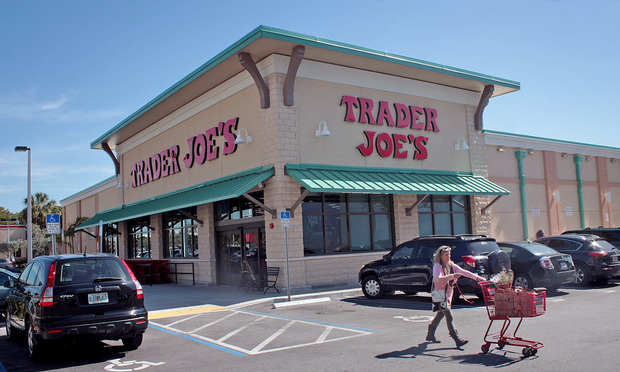The excessive 401(k) fees class action lawsuits keep coming. Last week, Trader Joe’s Co. employees filed a class action suit against the grocery chain, alleging their retirement plan was overinvested in a single fund that charged “needlessly high fees” and misused forfeited funds, alleged in the suit.
About 70% of the Trader Joe’s $2.7 million 401(k) plan—nearly $2 billion—was invested in the American Funds American Balanced Fund R4 until 2021, even though “much cheaper” versions of this investment were available, workers said in the complaint, Stephan et al v. Trader Joe’s Co. et al., filed in U.S. district court for the District of Massachusetts.
Last month, Southwest Airlines was sued by plan participants over the “disastrous” performance of its 401(k) funds, while JPMorgan was hit with a lawsuit over “wrongful use” of its forfeited funds. Later this month, on Feb. 21, the Supreme Court will reconvene to continue discussions on the Cornell University excessive fees lawsuit, filed by participants, with final ruling expected in June. This case is expected to open the floodgates for more 401(k) fiduciary lawsuits.
Trader Joe’s cost the plan millions of dollars and breached its fiduciary duties under the Employee Retirement Income Security Act by failing to swap the R4 fund for the less expensive R6 share class, alleged plaintiffs Beau Stephan, George Stray, Leonard Kirschling, George Phiripes, Rhonda Habell, Cameron Bass and Stephen Bubniak, on behalf of the 38,000 participants in the plan.
The American Funds American Balanced Fund R4 “consistently overcharged and underperformed, yet the Defendants inexcusably allowed it to remain in the Plan until 2021,” alleges the lawsuit. Specifically, the suit notes that approximately 70% of plan assets were invested in this one fund “to the financial detriment of Plaintiffs and the participants,” when “the same fund was available in the form of a much cheaper collective investment trust (“CIT”), in addition to the significantly less expensive R6 share class.”
Trader Joe’s fiduciaries “also breached their duty to Plan participants in other respects in regard to failing to defray the expenses of administering the Plan,” according to the suit. Specifically, Trader’s Joe’s “used millions of dollars of Plan assets, obtained from participant forfeited funds in the Plan, to benefit Defendants by reducing certain of the Company’s financial obligations, instead of using the Plan assets to benefit the Plan and participants by reducing or eliminating some of the excessive amounts charged to Plan participants for RKA.” The suit alleges this sum amounts to $37 million, from 2019 through 2022.
In addition, no target date funds, which “automatically rebalance their portfolios to become more conservative as the participant gets closer to retirement,” were offered in the plan, alleges the lawsuit. As a result, “the Plaintiffs are entitled to the difference between the returns they would have received had they been in an excellent performing target date suite as opposed to the solution offered by the Defendants which included a balancing of several poor performing funds,” alleged in the lawsuit.
Ultimately, Trader Joe’s and its Board of Directors “failed in their fiduciary duties either because they did not negotiate aggressively enough with their service providers to obtain better pricing or they were asleep at the wheel and were not paying attention. Either reason is inexcusable,” according to the suit.
During the pandemic, in 2022, Trader Joe’s, which had offered a generous 10% match contribution, cut the contribution to 5% for workers with less than 10 years at the company.













